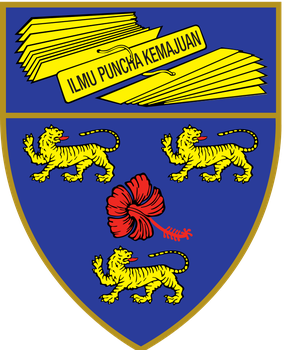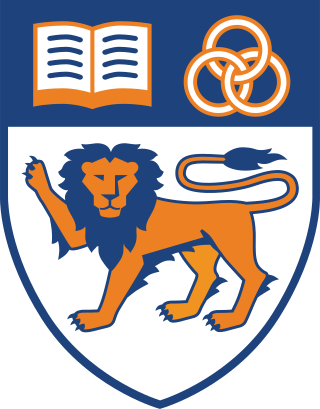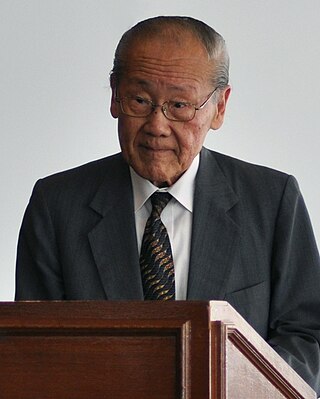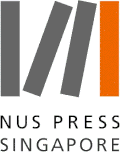
The University of Malaya is a public research university located in Kuala Lumpur, Malaysia. It is the oldest and highest ranking Malaysian institution of higher education, and was the only university in newly independent Malaya. The university has graduated five prime ministers of Malaysia, and other political, business, and cultural figures of national prominence.

The National University of Singapore (NUS) is a national public collegiate and research university in Singapore. Founded in 1905 as the Straits Settlements and Federated Malay States Government Medical School, NUS is the oldest autonomous university in Singapore. It offers degree programmes in disciplines at both the undergraduate and postgraduate levels, including in the sciences, medicine and dentistry, design and environment, law, arts and social sciences, engineering, business, computing, and music.

Wang Gungwu, is an Australian historian, sinologist, and writer specialising in the history of China and Southeast Asia. He has studied and written about the Chinese diaspora, but he has objected to the use of the word diaspora to describe the migration of Chinese from China because both it mistakenly implies that all overseas Chinese are the same and has been used to perpetuate fears of a "Chinese threat", under the control of the Chinese government. An expert on the Chinese tianxia concept, he was the first to suggest its application to the contemporary world as an American Tianxia.

Thum Ping Tjin, also known as PJ Thum, is a Singaporean historian, journalist, podcaster, activist and former swimmer. Thum was a national swimmer who participated in the 1996 Summer Olympics, and was the first Singaporean to swim the English Channel.
The Institute of Policy Studies (IPS) is a think-tank that studies and generates public policy ideas in Singapore. Established in 1988, IPS became an autonomous research centre of the Lee Kuan Yew School of Public Policy at the National University of Singapore in 2008. A centre for social indicators research, Social Lab, was set up by IPS in November 2013. The board of directors at the institute includes high ranking Singapore government officials, diplomats, directors of multinational businesses, and leaders of academic institutions.
Anthony Reid is a New Zealand-born historian of Southeast Asia. His doctoral work at Cambridge University examined the contest for power in northern Sumatra, Indonesia in the late 19th century, and he extended this study into a book The Blood of the People on the national and social revolutions in that region 1945–49. He is most well known for his two volume book "Southeast Asia in the Age of Commerce", developed during his time at the Research School of Pacific Studies, Australian National University in Canberra. His later work includes a return to Sumatra where he explored the historical basis for the separate identity of Aceh; interests in nationalism, Chinese diaspora and economic history, and latterly the relation between geology and deep history.
The Lee Kuan Yew School of Public Policy is an autonomous postgraduate school of the National University of Singapore (NUS), named after the late former Prime Minister of Singapore, Lee Kuan Yew.

NUSSU Rag and Flag is an annual charity project featured prominently in the National University of Singapore Students' Union (NUSSU) Freshmen Orientation Programme. The project comprises two separate but related events: students taking to the streets asking the public for donations on Flag Day and, subsequently, a procession of thematic floats that will perform within the university grounds on Rag Day.

Tan Tai Yong is a Singaporean academic who is the current President of Singapore University of Social Sciences. He served as the President of Yale-NUS College from 2017 to 2022. He is also Chairman of the Management Board of the Institute of South Asian Studies, an autonomous university-level research institute in NUS. He was a former Nominated Member of Parliament and served from 2014 to 2015.

Tan Chorh Chuan is a Singaporean college administrator and professor who served as the second president of the National University of Singapore between 2008 and 2017. He is currently a professor at the National University of Singapore.

Yale-NUS College is a liberal arts college in Singapore. Established in 2011 as a collaboration between Yale University and the National University of Singapore, it is the first liberal arts college in Singapore and one of the first few in Asia. With an average acceptance rate of 5.2%, it is among the most selective institutions in the world. Yale-NUS was the first institution outside New Haven, Connecticut that Yale University had developed in its 300-year history, making Yale one of the first American Ivy League schools to establish a college bearing its name in Asia.
The Yong Loo Lin School of Medicine, established in 1905, is the first institution of higher learning in Singapore and the genesis of the National University of Singapore. The School is one of many who offer medical programmes in the Asia Pacific region. The Times Higher Education World University Rankings 2019 by subject and Quacquarelli Symonds (QS) World University Rankings by Subject 2019 list NUS Medicine as the leading medical school in Asia. Its distinguished alumni include cabinet ministers of Singapore, well-known doctors and a Prime Minister of Malaysia and father of the president-elect of Singapore.

Sir Han Hoe Lim was a Singaporean physician and politician.
Saw Swee Hock HFLSE was a Singaporean leading expert in statistics, population, and economics, and was a noted philanthropist.
Karl Anthony Hack is a British historian and academic, who specialises in the history of Southeast Asia, the British Empire, and of insurgency and counter-insurgency. Drawing on interviews with insurgents, his work has demonstrated the role of high-level coercion in winning post-war counter-insurgencies, and explored extreme violence and violence limitation. He has also carried out a wide range of public work, ranging across heritage, memory, the media and the courts. He is a professor of history at The Open University where he has also been head of history, and head of the School of History, Religious Studies, Sociology, Social Policy and Criminology. Prior to joining The Open University in 2006, he taught at the National Institute of Education, at Singapore's Nanyang Technological University, from 1995 to 2006.
Kevin Hewison is an Australian social and political scientist, formerly the Weldon E. Thornton Distinguished Professor at University of North Carolina at Chapel Hill (UNC) and director of the Carolina Asia Center. He is now Weldon E. Thornton Distinguished Emeritus Professor at UNC.

The Faculty of Medicine, University of Malaya is one of the thirteen faculties of the University of Malaya (UM). It was officially established in September 1962 after the establishment of the university's Kuala Lumpur campus. This was the first medical school established in Malaysia.
John Norman Miksic is an American-born archaeologist.
Michael Aung-Thwin was a Burmese American historian and emeritus professor at the University of Hawaiʻi at Mānoa, specializing in early Southeast Asian and Burmese history.
The Singapore Mathematical Society is the primary organization "representing and advancing the interests of the mathematical community in Singapore".










